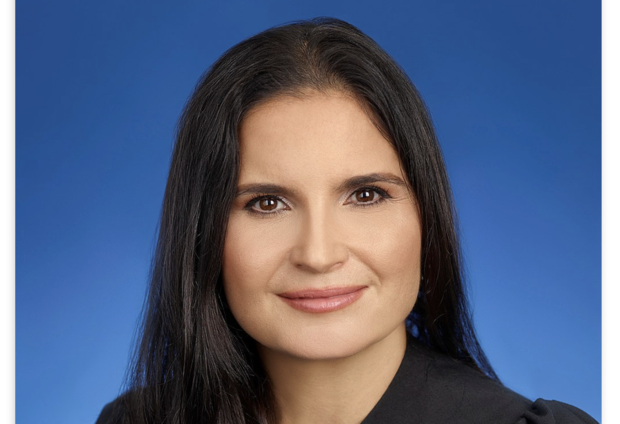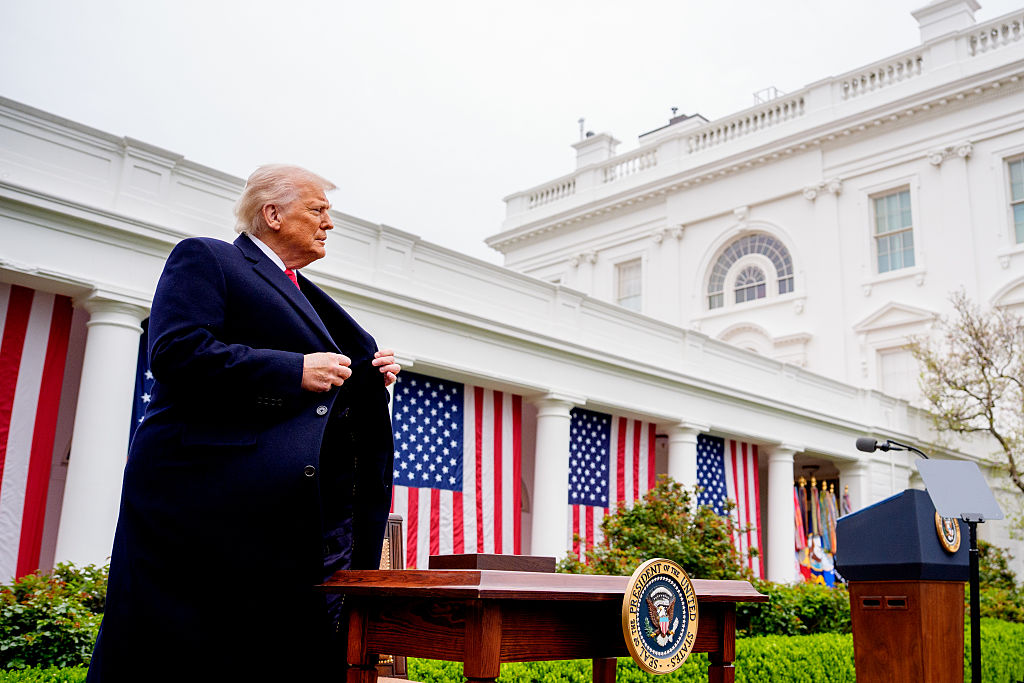Judge in Trump classified documents case hears arguments over whether Jack Smith's appointment was lawful
Washington — Special counsel Jack Smith and attorneys for former President Donald Trump were back in a Florida federal courtroom Friday to kick off three days of hearings to grapple with, among other issues, whether Smith should even be allowed to prosecute Trump.
The former president challenged the appointment and funding of the special counsel and argued in filings in February that Smith "lacks the authority to prosecute this action." Trump's legal team employed a legal theory that has been rejected by other federal courts in attempts to oppose other independent Justice Department probes. Trump's attorneys say Attorney General Merrick Garland lacked the constitutional authority to appoint Smith, arguing that a special counsel must be appointed by the president and approved by the Senate.
In court Friday, the government warned of pernicious consequences if Trump's view is accepted, including that there would be other officers at the Justice Department who would no longer have the authority to tackle critical work.
During the hearing, U.S. District Judge Aileen Cannon appeared somewhat skeptical of Trump's argument that Smith's appointment was unlawful.
At one point, Trump attorney Emil Bove implied that the attorney general's appointment of the special counsel risked creating a "shadow government." Cannon replied, "That sounds very ominous, shadow government, but what do you really mean?" She asked, "Is that really a realistic risk when you have well-defined regulations?"
Later in the day during rebuttals, Bove said that the attorney general should show proof of oversight and compliance. Smith's attorney, James Pearce asserted, " We are in compliance." He said prosecutors were "following the rules and regulations of the Justice Department."
"We, the special counsel, have complied," said Pearce.
Cannon then asked, "To what extent has there been oversight by the attorney general?" Pearce affirmed that there had been oversight but declined to provide more details.
"Why would there be any heartburn to answer whether the attorney general signed off on the indictment," Cannon asked.
The parties spent much of the day delving into statutes and debating whether or not they conferred the proper authority, in particular 28 U.S.C. section 533-1, which says that "[t]he Attorney General may appoint officials—(1) to detect and prosecute crimes against the United States."
Trump's legal team said there were "strong arguments that this does not confer the authority at issue here," pointing to the section "refers to officials, not officers," and said it was a "critical distinction." Bove argued that Smith is an officer, and the statute "does not provide for appointment of an officer."
Bove argued that Smith is a principal officer, whose appointment requires Senate approval, while the special counsel team and Seligman argued that he is an "inferior officer" who would not require Senate confirmation.
At one point, Cannon said, "I want to make sure we are very precise with our terminology."
Smith's team emphasized that "precedent, text, history and consequences" support its argument that Smith was lawfully appointed as special counsel. There is a "nearly 60-year history of use of special prosecutors," his team argued, noting the precedent of U.S. v. Nixon, a case that found that a president's executive privilege was not absolutely immune from judicial review. It required President Nixon to comply with a subpoena for tapes and documents.
Cannon also took the unusual step of inviting outside groups to argue each side of the issue before the court. Former federal prosecutors and elected officials filed a brief in support of Smith's appointment and urged her to rule swiftly against Trump to avoid what they said would be unnecessary hearings on the matter. The group includes former Justice Department officials who served under Republican presidential administrations and a former Republican member of Congress.
On the other side, former U.S. Attorneys General Edwin Meese and Michael Mukasey, who each served as attorney general in Republican administrations, wrote to bolster Trump's challenge. They said that "nearly all" special prosecutors in recent history were previously appointed by the sitting president and approved by the Senate as U.S. attorneys. Smith was "neither," they wrote, a contention the group will make in court on Friday.
Attorney Matthew Seligman, who argued Friday afternoon as a friend of the court, supported the prosecution's argument that the Supreme Court's Nixon precedent affirms the lawfulness of Smith's appointment. "The lawfulness of the special prosecutor's appointment was critical," he said regarding the ruling. "It was central and integral to the decision."
Trump's team had argued that the Nixon precedent did not have any binding authority, deeming it "dicta" rather than a holding of the case. Moreover, Bove said that "there was not proper attention paid to the Appointment Clause."
Pearce pointed out for the prosecution that while it wasn't the principal issue, Nixon established the "issue of whether the attorney general has the authority to appoint the Special Counsel," which has been upheld by multiple judges. In response to Trump's characterization of it as dicta, he noted that "dicta from the Supreme Court is also of a different genre than other types of dicta" and is "entitled to deference."
Judge Cannon also asked the parties to address the history of the use of special prosecutors and what those roles have actually been.
Trump's team has also challenged the funds the Justice Department uses to pay for the special counsel probes – an indefinite bucket of federal funds that special counsels are allocated by Congress to do their work.
In legal filings earlier this year, the special counsel defended his appointment and wrote Congress authorizes the attorney general to commission prosecutors to lead independent investigations for the Justice Department. Smith's appointment was sanctioned by special counsel regulations that have governed the work of other investigations, including that of former special counsels Robert Mueller and John Durham, who were both appointed during the Trump administration, prosecutors wrote.
"Attorneys General have long used these powers to appoint special attorneys with responsibilities like the Special Counsel's, with consistent support from Congress, the Executive Branch, and the courts," Smith wrote.
Trump's argument resembles a failed strategy President Biden's son, Hunter Biden, has tried in his bid to dismiss two cases filed against him by another special counsel, David Weiss, who was appointed Delaware U.S. attorney by Trump.
Cannon has not yet set a date for the case against Trump to go to trial and is still considering numerous legal challenges posed earlier this year. The former president is accused of mishandling national defense information — including some of the federal government's most classified material — after he left office. He and two aides are also accused of engaging in an alleged scheme to obstruct the classified records probe.
All three have pleaded not guilty and denied wrongdoing. None of the defendants are required to attend the upcoming hearings, which will also deal with a proposed gag order over Trump's speech.
Last month, the special counsel launched a bid to limit Trump's public comments about law enforcement on the case. Smith asked Cannon to change the former president's conditions of pretrial release to prohibit him from making comments similar to those he's made over the past few months about the case. Smith alleged Trump "endangered law enforcement officers involved in the investigation and prosecution of this case and threatened the integrity of these proceedings."
Federal prosecutors moved to limit Trump's public comments after he made false claims that FBI agents were "authorized to shoot" him as they executed a court-authorized search warrant at his Mar-a-Lago residence in August 2022. Trump was not at Mar-a-Lago during the search, in which agents recovered over 100 documents with classified markings as part of the federal probe into the former president's handling of sensitive government records.
Smith alleged that Trump had "grossly distorted these standard practices by mischaracterizing them as a plan to kill him, his family, and U.S. Secret Service agents." Without offering specific cases, prosecutors wrote that Trump's language "pose[s] a significant, imminent, and foreseeable danger to the law enforcement agents" and should be curtailed as a result.
Trump's legal team pushed back and accused prosecutors of trying to limit the former president's speech on the campaign trail.
Cannon is expected to consider their arguments in court Monday after hearing from each side on the matter of Smith's special counsel appointment.
On Tuesday, the judge will conduct a sealed hearing over attorney-client privilege matters and in open court will hear arguments over evidentiary matters.
Smith also charged the former president with four counts that amount to an alleged plot to illegally oppose the result of the 2020 presidential election. He has pleaded not guilty to those charges, and the case has been on hold while the Supreme Court considers his claims of presidential immunity from prosecution.
With the Supreme Court matter still pending and Cannon's lengthy pretrial schedule, the prospects that either of Smith's cases against Trump will go to trial before the presidential election are diminished.




